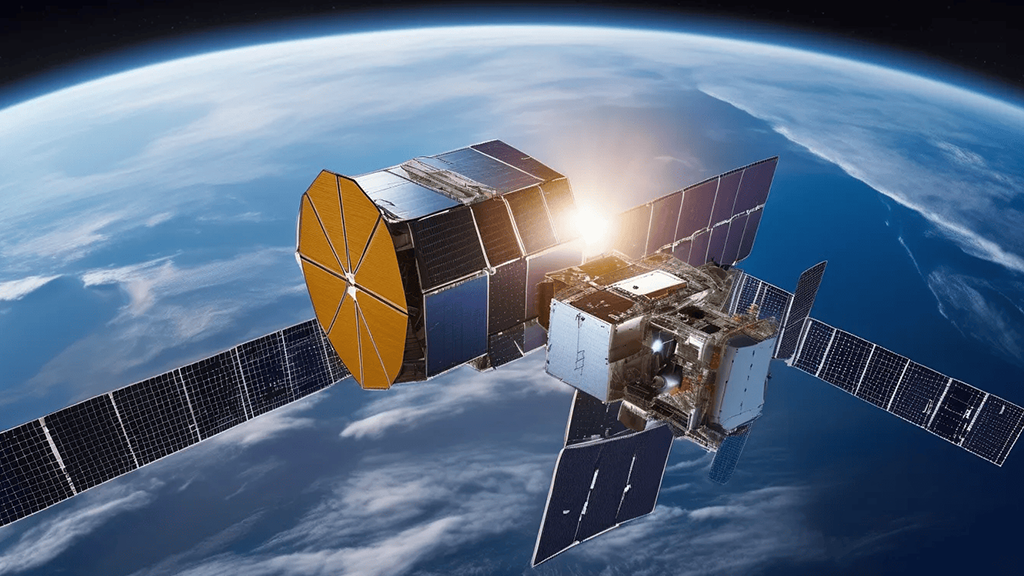
Why Skills-First Leadership Is Replacing the Ivy League Playbook in the C-Suite
The old prestige pyramid—where Ivy League degrees and blue-chip consulting backgrounds paved the way to the CEO seat—is cracking.

April 04, 2025: The European Union has launched its first independent military satellite communication system, marking a strategic shift toward greater defense autonomy. The new constellation, part of the IRIS² (Infrastructure for Resilience, Interconnectivity, and Security by Satellite) program, is designed to provide secure, high-speed communication links for European military and government operations.
The project is funded through EU budget contributions, private-sector partnerships, and national defense investments. The European Space Agency coordinates deployment logistics and technological integration. Unlike previous systems relying on bilateral or NATO infrastructure, IRIS² is the first to operate under a pan-European governance framework, with exclusive control retained by EU institutions and member states.
The satellites will serve military command centers, field units, civil protection agencies, and crisis response teams. The system is designed to withstand jamming, cyberattacks, and electromagnetic interference while supporting encryption standards compliant with EU and NATO interoperability protocols. Its dual-use architecture will also enable civilian applications, including disaster response, remote connectivity, and support for European space research.
The move comes amid rising geopolitical volatility and increased defense spending across the continent. EU leaders have stressed reducing reliance on third-country providers—particularly the United States—for strategic communications. The satellite network complements broader efforts to strengthen European defense under the Permanent Structured Cooperation (PESCO) and European Defence Fund (EDF) initiatives.
IRIS² also positions the EU competitively within the global satellite communications market, counterbalancing systems like SpaceX’s Starlink, China’s BeiDou, and Russia’s GLONASS while promoting industrial development within European aerospace and defense firms.
The first operational capabilities are expected by 2025, with full deployment by 2027. Long-term plans include quantum encryption upgrades and integration with EU cyber-defense frameworks.
Member states have emphasized that the system is not intended to duplicate NATO functions but to complement allied capabilities while enhancing European crisis resilience and strategic autonomy in high-threat scenarios. Further collaboration with the European External Action Service (EEAS) and the European Defence Agency is underway to develop usage protocols and joint mission planning.

The old prestige pyramid—where Ivy League degrees and blue-chip consulting backgrounds paved the way to the CEO seat—is cracking.

Loud leaders once ruled the boardroom. Charisma was currency. Big talk drove big valuations.

But the CEOs who make history in downturns aren’t the ones with the deepest cuts

Companies invest millions in leadership development, yet many of their best executives leave within a few years. Why?

The most successful business leaders don’t just identify gaps in the market; they anticipate future needs before anyone else.

With technological advancements, shifting consumer expectations, and global interconnectedness, the role of business leaders

Following a distinguished Law Enforcement career Joe McGee founded The Securitatem Group to provide contemporary global operational specialist security and specialist security training products and services for private clients, corporate organisations, and Government bodies. They deliver a wide range of services, including complete end-to-end protection packages, close protection, residential security, protection drivers, and online and physical installations. They provide covert and overt investigations and specialist surveillance services with a Broad range of weapons and tactical-based training, including conflict management, risk and threat management, tactical training, tactical medicine, and command and control training.

Jay Wright, CEO and Co-Owner of Virgin Wines infectious energy, enthusiasm, passion and drive has been instrumental in creating an environment that encourages talent to thrive and a culture that puts the customer at the very heart of every decision-making process.

Fabio de Concilio is the visionary CEO & Chairman of the Board at Farmacosmo, a leading organization dedicated to mental health and community support services. With a deep commitment to identifying and meeting customer needs, Fabio ensures that high standards are maintained across the board.

Character Determines Destiny – so said Aristotle. And David CM Carter believes that more than anything else. For David, it has been numerous years of research into codifying Entelechy Academy’s 54 character qualities that underpin everything he stands for as a leader and teacher.


Leave us a message
Subscribe
Fill the form our team will contact you
Advertise with us
Fill the form our team will contact you